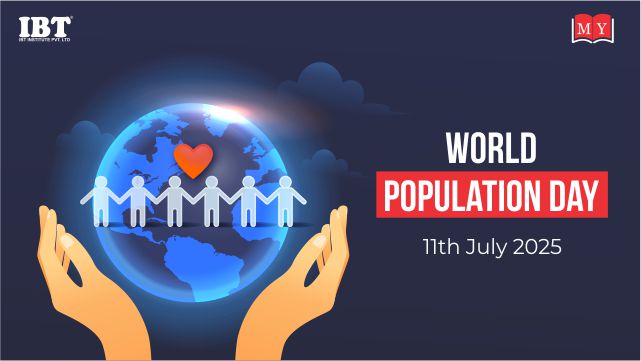World Population Day: 11th July

World Population Day: July 11th
World Population Day, observed annually on July 11th, is a significant international event that aims to raise awareness about global population issues and their profound impact on development, health, the environment, and human rights. This day serves as a critical platform for governments, organizations, and individuals to reflect on demographic trends and advocate for policies that promote sustainable development and well-being for all.
History and Origins
The roots of World Population Day can be traced back to July 11, 1987, when the global population reached an estimated five billion people. This milestone, dubbed "Five Billion Day," generated widespread public interest in population growth and its implications. Inspired by this global attention, the Governing Council of the United Nations Development Programme (UNDP) established World Population Day in 1989. The United Nations General Assembly, through resolution 45/216 in December 1990, solidified the observance to enhance awareness of population issues, including their relations to the environment and development. The first World Population Day was celebrated on July 11, 1990, in over 90 countries.
Significance and Objectives
World Population Day is crucial for a multitude of reasons, primarily to:
-
Raise Awareness: It draws attention to the urgency and importance of various population issues, such as population growth rates, urbanization, aging populations, migration, and their complex interplay with socioeconomic and environmental factors.
-
Advocate for Policies: The day encourages governments and institutions to adopt and implement policies that address population challenges effectively. This includes investing in education, healthcare, and family planning services.
-
Promote Reproductive Health and Rights: A core focus of World Population Day is to highlight the importance of universal access to reproductive healthcare services, including family planning. It emphasizes empowering individuals, especially women and young people, to make informed decisions about their bodies and family size, free from coercion.
-
Address Gender Equality: The observance underscores the vital link between gender equality and population dynamics. Empowering women through education, economic opportunities, and control over their reproductive health has a significant positive impact on population trends and overall societal development.
World Population Day 2025 Theme
The theme for World Population Day 2025 is "Empowering young people to create the families they want in a fair and hopeful world." This theme reflects the recognition that today's young generation (aged 10-24) is the largest in human history, and their choices will profoundly shape the future. It emphasizes the need to equip young people with:
-
Accurate Information: Providing comprehensive sexuality education and information about reproductive health.
-
Accessible Healthcare: Ensuring access to quality healthcare services, including family planning and sexual health services.
-
Genuine Choice: Empowering them to make autonomous decisions about their relationships, family size, and future, free from societal or economic pressures.
-
A Fair and Hopeful World: Addressing the systemic issues that hinder young people from realizing their aspirations, such as economic insecurity, gender inequality, limited education, climate disruption, and conflict.
This theme highlights that the current global fertility trends, including declining birth rates in some regions, are often not a result of young people freely choosing against parenthood, but rather due to various barriers that prevent them from having the families they desire.
3 likes |
0 comment
 4.5/5
4.5/5








